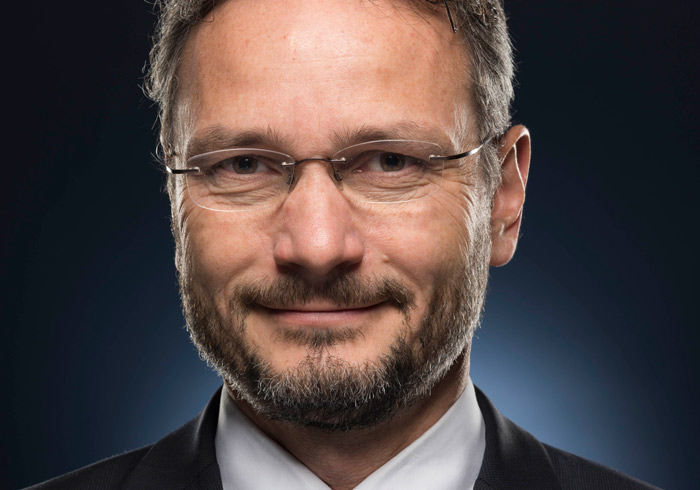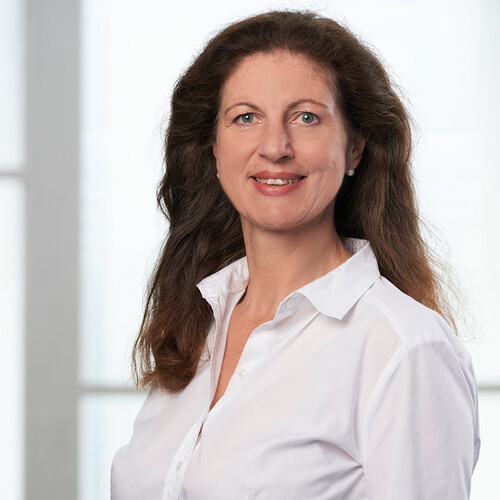Content
The rapid transformation processes in the mobility sector require companies to rethink and adapt to new technologies and sustainable ways of working. With the CAS "Systems and Software Engineering", we want to help companies successfully manage this change by equipping their employees with the latest knowledge and skills.
The curriculum of the CAS "Systems and Software Engineering" covers fundamentals of systems engineering, sustainable engineering and software engineering to modeling and simulation. Each training provides valuable abilities as well as practical methods and tools that are essential in today's fast-paced industry. The centerpiece of the certificate course is the understanding that efficient systems and software engineering are the key for actively shaping and successfully managing the transformation processes.
Take the opportunity to be at the forefront of innovation. Register now >
Program Director
 |
Prof. Dr.-Ing. Eric Sax
|
What is a CAS?
A Certificate of Advanced Studies (CAS) is a focused qualification that equips professionals with expertise in a specific field. Delivered in a four-step format, each with 3-4 days of intensive learning, it blends practical experience with industry insights for rapid knowledge integration.
Developed by top experts from academia and industry, HECTOR School CAS programs cover systems engineering, e-mobility, and automated driving, offering hands-on learning and access to cutting-edge mobility research at KIT in Karlsruhe.
Flexible and impactful, a CAS deepens expertise, expands career opportunities, and addresses emerging industry challenges.
Key Facts
- Language: English or German (upon request)
- Admission requirements: First academic degree in a relevant subject, professional experience, English language profiency. Detailed description of all admission requirements.
- Costs: € 5,970* for the entire CAS program (exempt from value added tax)
- Certificate: KIT certificate and 10 ECTS points upon exam completion.
Structure
| Step 1 | Step 2 | Step 3 | Step 4 |
|---|---|---|---|
| November 10 - 13, 2025 | February 23 - 26, 2026 | April 13 -16, 2026 | June 2026 |
|
Fundamentals of Systems Engineering Embedded Systems Development (Case Study) |
Control Systems Development Modeling and Simulation |
Model-Based System Engineering (Case Study) Sustainable Engineering |
Software Engineering Discrete-Event Systems Simulation |
Lecture times: mostly 8:00 am - 5:15 pm (more details upon request).
Location: HECTOR School of Engineering and Management | Schlossplatz 19, 76131 Karlsruhe
Fundamentals of Systems Engineering
Control Systems Development
Modeling and Simulation
Model Based Systems Engineering (Case Study)
Sustainable Engineering
Software Engineering
Discrete-Event Systems Simulation
- Knowledge and hands-on experience in discrete-event simulation
- Modeling and analyzing real-world systems using advanced simulation tools
- Planning and executing simulation projects
- Statistical methods to analyze simulation data
- Solving complex problems and evaluating system performance in practical settings
Customer Voice
"The CAS Systems and Software Engineering provided me with a comprehensive understanding of a range of areas, including hardware, software, electronics, modelling, product design and sustainability. Furthermore, it also enhanced my knowledge of transitions and interfaces between these domains, which is essential for effective cross-domain collaboration and the delivery of successful products and solutions.“
Jannik Ernst
Chief Product Owner | ZF Group
Outlook and Related Trainings
HECTOR School currently offers three CAS programs.
Participants have the option to complete several CAS and thus gain a Diploma of Advanced Studies (DAS), a postgraduate qualification that provides in-depth expertise, hands-on experience, and industry insights in a specific field. For companies, a DAS helps upskill employees and prepare them for new domains, equipping them with essential knowledge for today’s evolving industry.
The DAS Mobility Systems Engineering comprises three main components:
- Core module (10 ECTS): CAS on Systems and Software Engineering
- Elective module (10 ECTS): participants can choose between:
- CAS on E-Mobility Systems and Technology
- CAS on Methods and Technologies of Automated Driving
- Practical thesis (10 ECTS): addresses a challenge or opportunity within the participant's organization or industry.
Explore CAS content by clicking on the tiles below.

Ms. Martina Waldner
Senior Program Consultant HECTOR School
info∂hectorschool com
+49 721 608 47019






